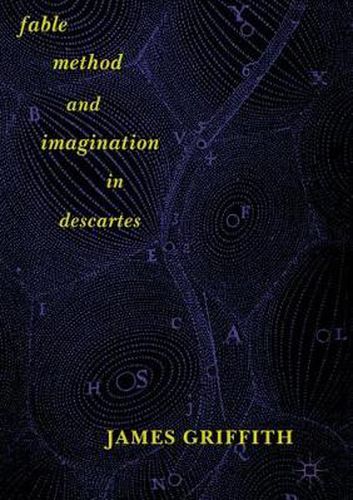Readings Newsletter
Become a Readings Member to make your shopping experience even easier.
Sign in or sign up for free!
You’re not far away from qualifying for FREE standard shipping within Australia
You’ve qualified for FREE standard shipping within Australia
The cart is loading…






This title is printed to order. This book may have been self-published. If so, we cannot guarantee the quality of the content. In the main most books will have gone through the editing process however some may not. We therefore suggest that you be aware of this before ordering this book. If in doubt check either the author or publisher’s details as we are unable to accept any returns unless they are faulty. Please contact us if you have any questions.
What role do fables play in Cartesian method and psychology? By looking at Descartes’ use of fables, James Griffith suggests there is a fabular logic that runs to the heart of Descartes’ philosophy. First focusing on The World and the Discourse on Method, this volume shows that by writing in fable form, Descartes allowed his readers to break from Scholastic methods of philosophizing. With this fable-structure or -logic in mind, the book reexamines the relationship between analysis, synthesis, and inexact sciences; between metaphysics and ethico-political life; and between the imagination, the will, and the passions.
$9.00 standard shipping within Australia
FREE standard shipping within Australia for orders over $100.00
Express & International shipping calculated at checkout
This title is printed to order. This book may have been self-published. If so, we cannot guarantee the quality of the content. In the main most books will have gone through the editing process however some may not. We therefore suggest that you be aware of this before ordering this book. If in doubt check either the author or publisher’s details as we are unable to accept any returns unless they are faulty. Please contact us if you have any questions.
What role do fables play in Cartesian method and psychology? By looking at Descartes’ use of fables, James Griffith suggests there is a fabular logic that runs to the heart of Descartes’ philosophy. First focusing on The World and the Discourse on Method, this volume shows that by writing in fable form, Descartes allowed his readers to break from Scholastic methods of philosophizing. With this fable-structure or -logic in mind, the book reexamines the relationship between analysis, synthesis, and inexact sciences; between metaphysics and ethico-political life; and between the imagination, the will, and the passions.